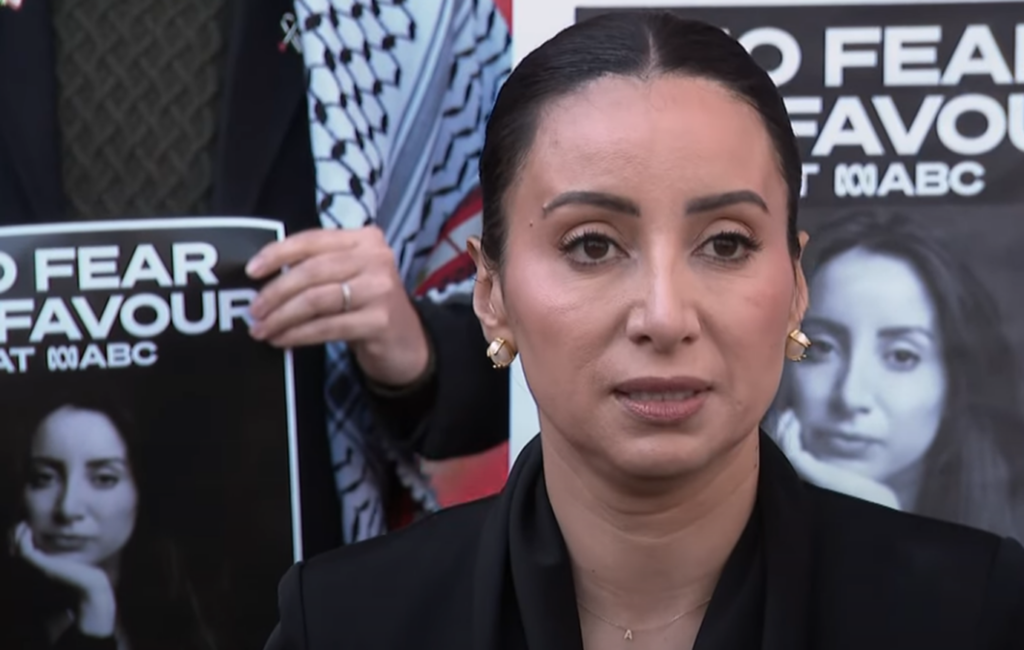As a fellow Lebanese woman, I felt an overwhelming sense of pride and vindication when Antoinette Lattouf won her case against the ABC this week. Her victory wasn’t just personal, it was symbolic. It exposed the deep cracks in how institutions understand, or fail to understand, intersectionality in the workplace.
When Sojourner Truth stood up in 1851 and asked, “Ain’t I a Woman?” she wasn’t just demanding recognition as a woman, she was demanding recognition as a Black woman, whose experiences of womanhood were shaped by race, class, and oppression. Her words laid the foundation for what we now call intersectionality, a term coined by legal scholar Kimberlé Crenshaw in 1989 to describe how different aspects of a person’s identity (like race, gender, class, and more) intersect to create unique experiences of discrimination or privilege. Today, intersectionality is more than a theory. It’s a necessary lens for understanding how systems of power operate in workplaces and beyond. It reminds us, for example, that not all women experience gender inequality the same way, and that policies aimed at inclusion must account for these overlapping identities.
We often talk about intersectionality as a buzzword, a trendy concept in diversity and inclusion strategies. But Antoinette Lattouf’s case is a real-world example of what happens when intersectionality is not recognised, respected, or embedded in workplace policies and practices. In the context of Antoinette Lattouf’s case, it’s clear that her experience cannot be separated from her identity as a woman of colour, and that failing to recognise this intersection is not just an oversight it’s a systemic failure.
Antoinette Lattouf, a respected journalist and broadcaster, was abruptly taken off air during a five-day stint at ABC Radio Sydney in December 2023. Her “offence”? Sharing a Human Rights Watch post on social media about the use of starvation as a weapon of war in Gaza. The ABC claimed she was removed for breaching internal guidelines, but the Federal Court found that her dismissal was influenced by external political pressure and that the ABC failed to follow due process under the Fair Work Act. This wasn’t just a procedural failure, it was a failure to protect the rights of a woman of colour who dared to speak out. Lattouf’s political views and cultural identity were well known before she was hired. She never hid who she was. And yet, when controversy arose, the ABC folded under pressure, silencing her voice rather than standing by its own values of diversity and inclusion.
As someone who was once a human resources manager, l believed that you should “leave your baggage at the door” when you come to work. I now see how flawed that thinking was. Life has taught me that we don’t leave our identities behind when we clock in. I am a woman, a mother, and a culturally diverse person. These intersecting identities shape how I see the world, how I work, and what I bring to the table. Intersectionality isn’t a burden but rather a strength. It enriches our workplaces with diverse perspectives, lived experiences, and critical thinking. But only if workplaces are brave enough to embrace it. Many organisations still don’t get it. They treat diversity as a checkbox, not a commitment.
Lattouf’s case is a stark reminder of what happens when organisations fail to understand intersectionality. When they don’t protect employees who speak from the margins. When they silence voices that challenge the status quo. The ABC’s actions were not just disappointing, they were amateur. A national broadcaster, accountable to the public, should have known better. It should have stood firm in the face of external pressure. Instead, it capitulated, exposing what Lattouf rightly called “the rot and the systemic racism” within the institution.
So where do we go from here? We must move beyond performative diversity. Intersectionality must be embedded in every layer of organisational culture from recruitment and promotion to leadership and decision-making. It must be reflected in how we treat employees, especially when they speak out on issues that matter. Because if we truly value inclusion, we must protect the right of every employee to bring their whole self to work. Not just the parts that are easy to digest.

